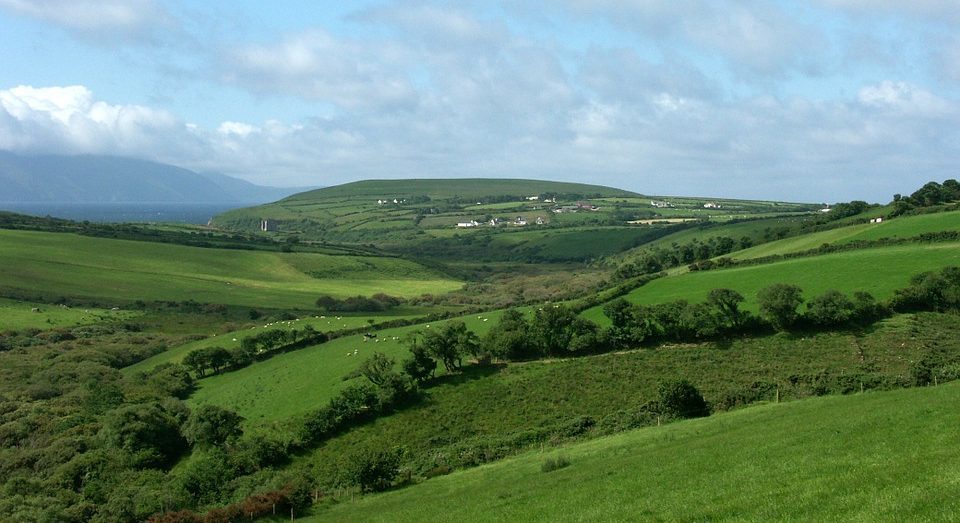The Department of Agriculture, Food and the Marine will consider the redeployment of existing staff to Irish ports and airports in the event of a no-deal Brexit.
According to the Government’s Contingency Action Plan for a no-deal Brexit – published last night (Wednesday, December 19) and available here – the department may redeploy current staff using models such as those put in place for the response to Foot-and-Mouth disease.
However, the document outlines that the department is currently implementing the steps necessary to facilitate potentially increased Sanitary and Phytosanitary (SPS) controls which – in turn – will require staffing, infrastructural and Information and Communications Technologies (ICT) requirements to be addressed at ports and airports.
The first phase of this process, the recruitment of staff anticipated for 2019, is currently being put in place.
A new Environmental Health Officer Panel is also scheduled to be in place by February 2019 and can be deployed rapidly in a no-deal Brexit scenario.
‘Very real scenario’
In the working document the Government recognises that, given the proximity of the formal date for UK exit from the EU of March 29, 2019, the prospect of a no-deal Brexit is “very real”.
The Government also states its “regret” that, as of yet, the withdrawal agreement – agreed between the EU, including Ireland, and the UK – has not been approved by the UK Parliament.
- The UK would be a “third country” as of March 29, 2019;
- The UK would, therefore, no longer be represented in EU institutions, agencies, bodies and offices, and the terms of the transition period, as provided for in the draft withdrawal agreement, would not come into effect;
- The UK would be outside all existing union regulatory, budgetary, supervisory, judiciary and enforcement instruments and structures would cease to apply – including the competence of the Court of Justice of the European Union;
- And contingency actions would be taken by the European Commission in a limited number of areas including citizens’ rights, financial services, air transport, road transport, customs and climate policy, among others.
The report also states that a no-deal Brexit would require an “immediate focus on crisis management” and possible temporary solutions which would be rapidly implemented until the necessary longer-term adjustments are in place.
It outlines that for Ireland, a no-deal Brexit would potentially involve severe macroeconomic, trade and sectoral impacts.
Grappling with the enormous range of impacts both in the immediate short term and in the longer term will involve difficult and significant choices of a practical, strategic and political nature.
It is stated that the primary channel through which Brexit’s economic effects would emerge would be through application of WTO tariffs and regulatory divergence (non-tariff barriers).
These could affect supply chains and the cost and/or availability of imports from the UK.
“A further fall in the value of sterling would impact on the competitiveness of Irish businesses, while a deterioration in economic conditions in Britain could impact on exports,” it states.
The document explains that the economic impact is also likely to be greater in certain regions – especially the border region – and on smaller businesses that are more dependent on trade with Britain and Northern Ireland.
Under adverse macroeconomic scenarios, an increase in exchequer borrowing and other measures might be required, the document notes.
Northern Ireland
In the absence of a withdrawal agreement, there would inevitably be questions over the protections offered by the Good Friday Agreement and to the rights and benefits enjoyed by the people of Northern Ireland.
It is stated that for Northern Ireland businesses and farmers, the prospect of operating outside the EU with no deal would be extremely serious.
“The commitment of the Government throughout the Brexit process to preventing the re-emergence of a hard border on the island of Ireland remains of the highest priority.
“The focus of the Government is on ensuring ratification of the withdrawal agreement and its backstop provisions,” it states.
Pressure points
Under the Department of Agriculture’s contingency planning, it continues to explore pressure points that industry might encounter and is looking at mitigation options in the event of a hard Brexit.
Areas covered include supply chain analysis, transport/logistical arrangements, possible import control and export certification requirements, use of the UK landbridge, and integration with customs arrangements.
Market diversification and the Minister for Agriculture, Food and the Marine, Michael Creed’s, recent trade missions to the Gulf Region, China, Canada, the United States of America, Mexico, Japan, Korea, Malaysia and Indonesia are also highlighted.
Budget 2019’s €78 million Brexit package for farmers, fishermen, food SMEs aimed at covering additional costs related to Brexit is also underlined.
